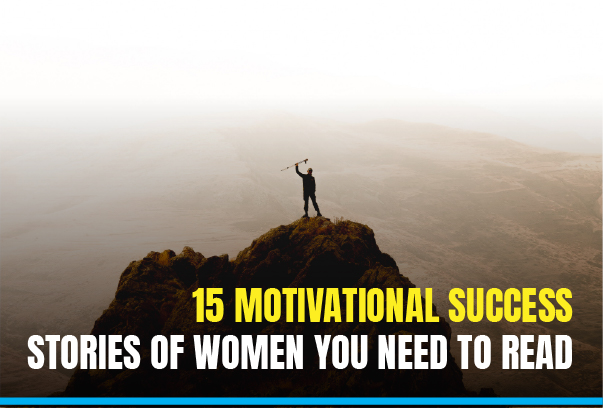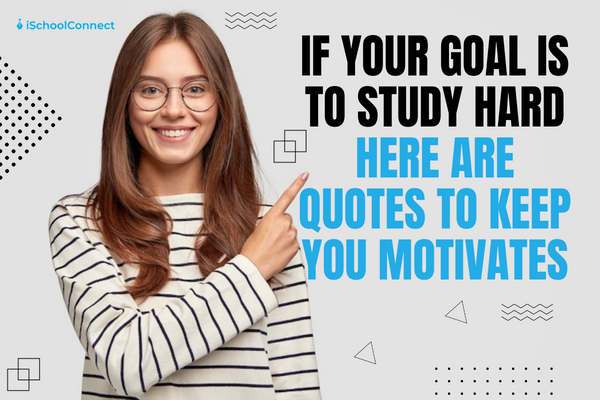Meet 15 Extraordinary Women who are Changing Our World
Indeed, the list of amazing women who have contributed to bettering society and encouraging those in need is inexhaustive. Today we shall talk about 15 women who made incredible contributions to society. They not only challenged norms but are also helping create opportunities for young girls across the world. Needless to say that these courageous and inspirational women are changing the face of society. Here is a collection of real motivational success stories of some of the world’s most influential women.
Also know: Top 5 Most Famous Women in India
- Greta Thunberg – “Fridays for Future”
Picture this: A teenage girl standing alone outside Swedish Parliament with a handmade sign. Who knew this quiet protest would spark a global movement? Greta isn’t your typical activist – she’s a young woman who saw the world burning and refused to stay silent. While most teens were worrying about social media, she was giving world leaders a piece of her mind at the UN. Sure, she’s faced trolls and critics, but here’s what makes Greta special: she simply doesn’t care. With her trademark braids and unflinching honesty, she turned “how dare you” into a battle cry for climate action. Not bad for someone who started with just a cardboard sign and determination, right?
- Malala Yousafzai – Nobel Peace Prize winner
She was just a girl who wanted to go to school. That’s it. Nothing radical – except it was, in Taliban-controlled Pakistan. When they tried to silence her with bullets, they learned what true courage looks like. See, Malala isn’t just the youngest Nobel Prize winner in history; she’s living proof that education is worth fighting for. These days, she travels the world championing girls’ education, but don’t let the accolades fool you – at heart, she’s still that same brave girl who believed knowledge is power. And guess what? She was right.
Read On: Women empowerment essay | How to write the perfect one!
Arunima Sinha – The One-Legged Climber
Ever had one of those moments that could either break you or make you unstoppable? That’s Arunima’s story. Thrown from a moving train by robbers, she lost her leg – but found her purpose. While most people would have focused on recovery, Arunima thought, “You know what? I’m going to climb Mount Everest.” Not someday, not eventually – but now, as an amputee. And she didn’t just dream it; she did it. Next time you think something’s impossible, remember the woman who looked at the world’s highest peak and said, “Challenge accepted.”
- J K Rowling – The Real Potter
Here’s a story that started on a delayed train: a single mom, living on benefits, scribbling tales about a boy wizard in Edinburgh cafés while her baby slept. Publishers said no – again and again. But JK Rowling kept writing, because sometimes magic isn’t about waving wands; it’s about not giving up when the world says you should. Today, Harry Potter has enchanted millions, but the real magic? It’s how a woman turned rock bottom into a launchpad. These days, she’s known as much for her generosity as her writing, proving success tastes sweeter when shared.
Explore: 6 inspirational women who studied abroad
- Serena Williams – Tennis Player
Ever watched a force of nature wearing tennis whites? That’s Serena. She didn’t just play tennis – she revolutionized it. With a serve that could make grown men gulp and a spirit that couldn’t be broken, Serena smashed records and stereotypes with equal force. When people talked about her muscles or her outfits, she answered with Grand Slams. Twenty-three of them, to be exact. Even as a mom, she kept competing, showing the world that female athletes don’t have to choose between family and career. Game, set, match, legend.
Another gem: Lakshmi Agarwal | Survivor and Iconic symbol of women’s empowerment
- Beyonce – ‘Single Ladies – Put a ring on it’
They call her Queen B, but she earned that crown one fierce performance at a time. From Destiny’s Child to solo superstardom, Beyoncé isn’t just making music – she’s making statements. Think about it: who else could turn a pregnancy announcement into art, or a music video into a social movement? Her songs aren’t just bops; they’re battle cries for women everywhere. When Beyoncé says “who runs the world?”, it’s not really a question – it’s a reminder.
- Abia Akram – Carrying her own Throne
Life gave her a wheelchair; she turned it into a throne. Born with rickets in Pakistan, Abia could have accepted limitations. Instead, she became a voice for millions. She’s not just talking about disability rights – she’s revolutionizing how we think about them, especially for women. The “Champion of Disability Rights” award? That’s just official recognition of what she does every day: making the world a little more accessible, one barrier at a time.
- Vandana Bahadur – A Leader at Home and at Work
In rural India, where women are often told to stay quiet and stay home, Vandana had other ideas. From managing a household to running an entire village – talk about a career change! As the first female Sarpanch of Khankhandvi, she didn’t just break the glass ceiling; she shattered age-old traditions. With her husband’s support and pure grit, she showed that leadership has nothing to do with gender and everything to do with vision.
- Sudha Murty – Philanthropist and Chairperson of Infosys foundation
Think of her as India’s beloved aunt who happens to be a tech pioneer, author, and philanthropist. Remember that time she called out Tata Motors for not hiring women engineers? She didn’t just write a letter – she became their first female engineer! But that’s Sudha for you: breaking barriers with grace, writing stories that warm hearts, and using her success to build libraries and homes for those in need. She’s living proof that you can be both brilliant and kind.
- Mira Murati – Behind ‘OpenAI’
When people think of a tech genius, they might picture a guy in a hoodie. Enter Mira Murati, the woman helping shape the future of AI at OpenAI. Originally from Albania, she’s proof that innovation knows no borders – or gender. In a world of tech bros, she’s bringing a fresh perspective to artificial intelligence, showing girls everywhere that they too can code the future.
- Ursula Von Der Leyen – President of European Commission
Running Europe isn’t exactly a 9-to-5 job, but this German powerhouse makes it look like a walk in the park. As the first woman to lead the European Commission, she’s not just sitting at the table – she’s heading it. Mother of seven, trained physician, and political force: if anyone tells you women can’t have it all, just mention Ursula’s name.
- Narges Mohammadi – The Journalist
Some heroes wear capes; Narges wear courage. This Iranian journalist has spent more time in prison than some people spend in college – all because she dares to speak truth to power. Her Nobel Peace Prize isn’t just an award; it’s a testament to what happens when you refuse to be silenced. Even from behind bars, her voice rings louder than ever.
- Avani Chaturvedi – Fighter Beyond the Clouds
When they said the sky’s the limit, Avani took it literally. As India’s first woman fighter pilot, she’s not just flying planes – she’s soaring past gender barriers at supersonic speed. That solo flight in a MiG-21? Just another day at the office for this ceiling-breaker. She’s proof that women belong in the cockpit just as much as they belong anywhere else.
- Mary Kom – The Best User of Fists
In a sport where people punch each other for a living, Mary Kom punches hardest at stereotypes. This mom of three from India didn’t just enter the male-dominated world of boxing – she conquered it. Eight World Championship medals? Check. Olympic bronze? Done. Juggling family life with left hooks? All in a day’s work for this champion who proves you can be both fierce and feminine.
- Amanda Gorman – The Healing Voice
Sometimes the quietest voices speak the loudest truths. Growing up with a speech impediment, Amanda turned to writing – and boy, did she find her voice! At Biden’s inauguration, this young poet didn’t just recite words; she captured a nation’s heart with “The Hill We Climb.” From speech therapy to speaking truth to power, she’s living proof that your biggest challenge can become your greatest gift.
Further reading: Indra Nooyi | The success story of a glorious woman
Top 10 Most Powerful Women around the Globe
| Rank | Name | Age | Location | Category |
| 1 | Ursula von der Leyen | 66 | Belgium | Politics and Policy |
| 2 | Christine Lagarde | 68 | Germany | Politics and Policy |
| 3 | Giorgia Meloni | 46 | Italy | Politics and Policy |
| 4 | Claudia Sheinbaum | 62 | Mexico | Politics and Policy |
| 5 | Mary Barra | 62 | United States | Business |
| 6 | Abigail Johnson | 62 | United States | Finance |
| 7 | Julie Sweet | 57 | United States | Business |
| 8 | Melinda French Gates | 59 | United States | Philanthropy |
| 9 | MacKenzie Scott | 54 | United States | Philanthropy |
| 10 | Jane Fraser | 57 | United States | Finance |
Discover: 6 inspirational women who studied abroad
Last Thoughts
These real motivational stories of women in every field are a must-read for everyone. The inspirational tales of endurance and perseverance are the reason that today, girls and women receive higher knowledge, skills, self-confidence, and capacities as a result of education, which improves their life prospects. Most importantly an educated woman offers better nourishment, health care, and education for her family.
Liked this blog? Read Top 5 motivational stories every student should know | Get inspired today!
FAQs
Ques 1: What role do motivational success stories have in one’s life?
Answer 1: Motivational stories are incredibly impactful because they inspire us and help us muster the courage to tackle challenges in our own lives. This also aids in the improvement of our value system, and we tend to become more grounded. As readers, we may relate to the character in certain respects.
Ques 2: What motivates people when they read stories?
Answer 2: Our curiosity, emotions, and imagination are all piqued when we hear stories. Since stories are so cognitively rich, analyzing them becomes a far more per






